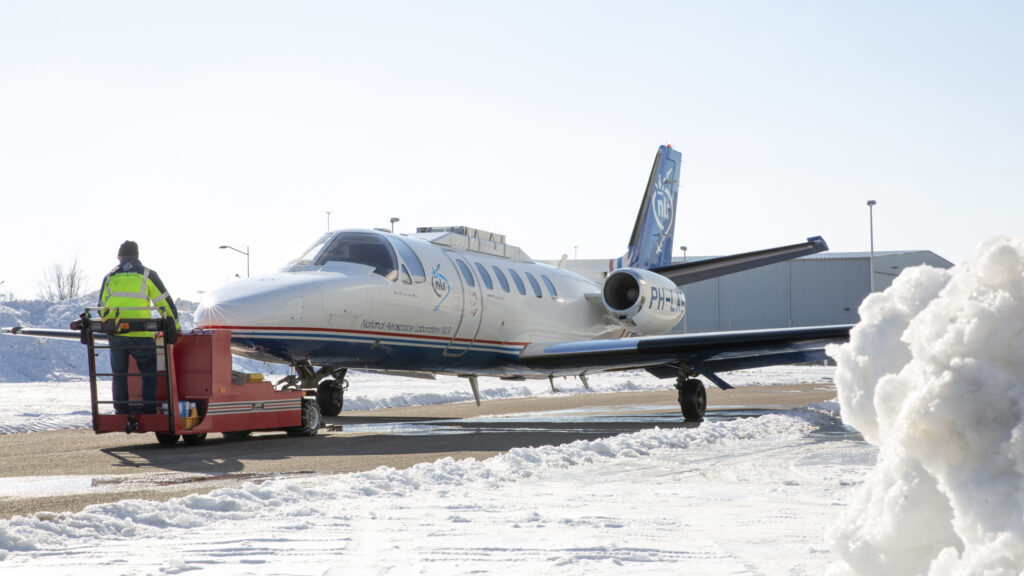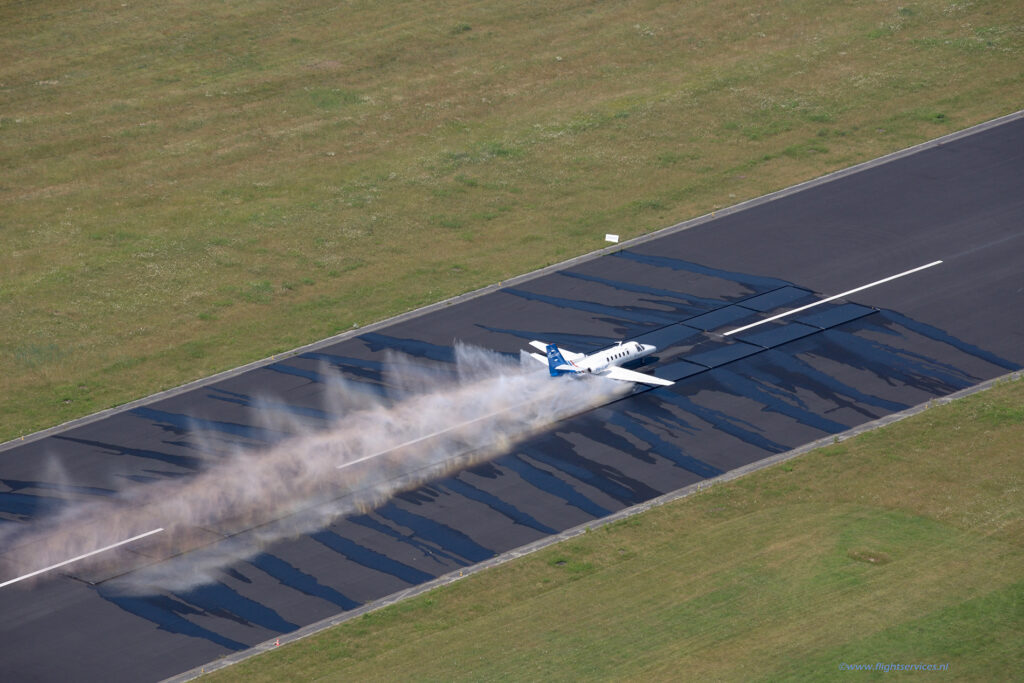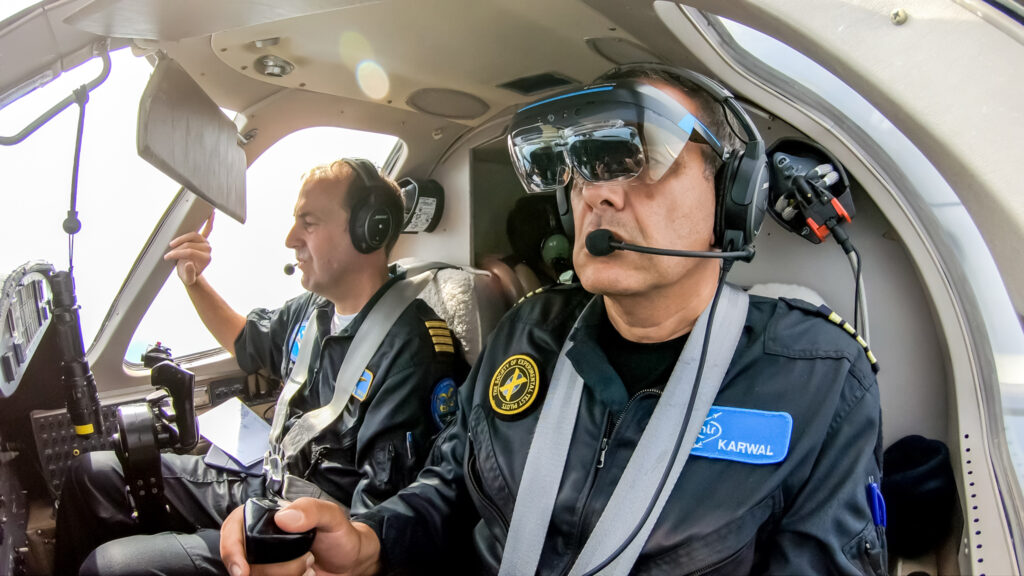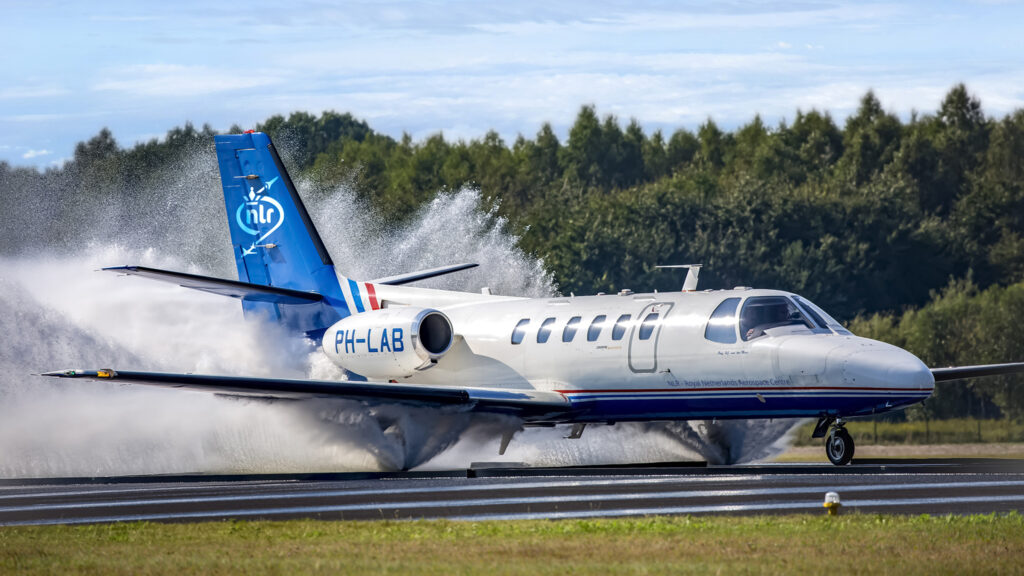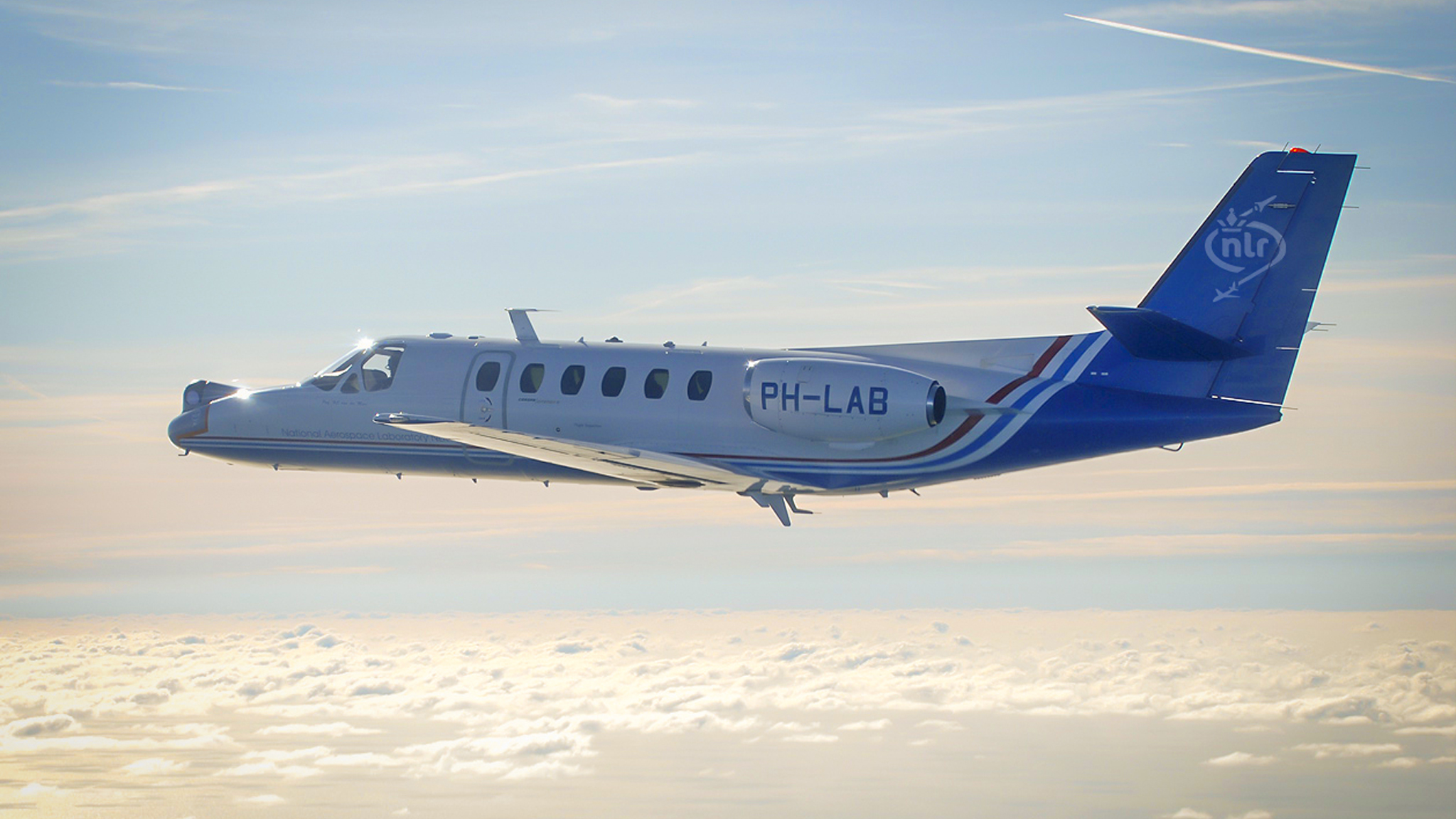The Cessna Citation II research aircraft offers opportunities to perform a wide variety of flight test applications. Extensive modifications have turned this pressurised, twin-engined business jet into a versatile airborne research platform. Flight test topics range from aerodynamics, flight mechanics, zero-gravity, atmosphere, airborne remote sensing and flight test methods, to system tests, air traffic management, avionics, alternative fuel, and flight inspection.
Main features
Aircraft features:
- A separate electrical system dedicated to powering onboard test equipment
- An additional stand-alone 3000 psi hydraulic system
- Provisions on fuselage for mounting an external pod
- Numerous facilities in cockpit and cabin for accommodating test equipment
- An antenna box on top of the fuselage that can accommodate multiple antennas
- Underwing panels configured for antenna installation
- A noseboom with alpha/beta vanes or five-hole probe
- A fuselage fairing accommodating a forward facing optical glass
- Several metal plate inserts that can replace existing windows and can accommodate flight test equipment.
Flight test instrumentation:
- Inertial Reference System
- Digital Air Data System
- GPS high-accuracy positioning system (phase tracking)
- Multi-channel digital data acquisition and recording system (general aircraft state parameters are real-time available in cabin)
- Iridium SATCOM
- Liquid Water Content sensor
- Humidity sensor
- Telemetry system
- Digital integrated avionics system in cockpit, offering opportunities to test new experimental display formats in flight.
General:
- Home base: Rotterdam The Hague Airport (NL)
- A maximum payload of 1400 kg (incl. Crew), range upto 3000 km, endurance of 5.30 hours, max speed of 840 km/h (Ma 0,705) and maximum operating altitude of 13000m (FL 430)
- Can be operated single-pilot IFR/VFR, allowing display and/or procedure evaluations by the customer from the right hand seat
- As EASA part 21 holder, NLR has the autonomy to modify aircraft systems
- The aircraft is operated in partnership with TUDelft.
